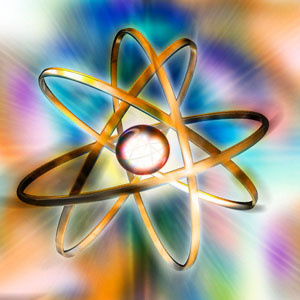Icebreakers Coming Up?
Commentary by Dr. Hosein Salimi, political affairs analyst, on IAEA’s report and the prospect of Iran’s nuclear program

IAEA’s latest report on Iran’s nuclear program was released on Friday; Iran is still continuing the production low-enriched uranium, though the number of centrifuges used for this purpose has declined. Meanwhile the agency has reported about the visit to Iran made by a foreign nuclear scientist. Following comes commentary by Dr. Hosein Salimi, university professor and political affairs analyst:
In the current situation, IAEA’s reports or legal comments are all of secondary importance. What really counts is the general diplomatic atmosphere of the international scene. It seems that IAEA’s latest report has been prepared taking consideration of this general atmosphere which views Iran’s nuclear program with suspicion.
If you remember, about one month ago in an interview Head of the IAEA Mohammad ElBaradei claimed his personal feeling is that Iran is pursuing an atomic weapon. Juxtapose this with the words of world power leaders who threaten to toughen the sanctions if Iran won’t return to the table of nuclear negotiations. It seems that the latest IAEA report provides enough justifications to pressurize Iran in the international scene. What makes it worse is the public feeling about what is currently going on inside Iran after the controversial elections.
Considering all these, Iran will likely face further international sanctions, but how could it reshape the global public opinion?
Iran has frequently announced that it is ready to continue the nuclear talks. Nonetheless, the realization of Iran’s demands and conditions in the nuclear talks depend on many factors, including how moderate are the policies of world powers going to be or how intent they are in reducing their nuclear activities.
Such conditions will not be good icebreakers in Iran’s relations with world powers. The only thing that can bring about a considerable change is Iran’s policy shift. Iran has shown such a tendency: unofficial reports claim that Iran has halted UF6 production and amassing enriched uranium for a while.
Such unofficial reports make develop conditions for agreement. However, we can not be certain about that and should wait Tehran’s latest stance or the outcome of its negotiations with Five plus One. In the current situation, Tehran’s diplomatic stances and policies are difficult to predict and we may witness a sudden transformation.
As a rough prediction, if the present situation further develops, and no changes occur, Iran will most likely undergo another round of pressures and sanctions. But if despite its fiery rhetoric Tehran makes some tacit turns, world powers and the international community may moderate their policy. Iran has a history of changing its stance in the middle of strident criticism of some powerful states. That will help to tone down international community’s behavior.
In the current situation, IAEA’s reports or legal comments are all of secondary importance. What really counts is the general diplomatic atmosphere of the international scene. It seems that IAEA’s latest report has been prepared taking consideration of this general atmosphere which views Iran’s nuclear program with suspicion.
If you remember, about one month ago in an interview Head of the IAEA Mohammad ElBaradei claimed his personal feeling is that Iran is pursuing an atomic weapon. Juxtapose this with the words of world power leaders who threaten to toughen the sanctions if Iran won’t return to the table of nuclear negotiations. It seems that the latest IAEA report provides enough justifications to pressurize Iran in the international scene. What makes it worse is the public feeling about what is currently going on inside Iran after the controversial elections.
Considering all these, Iran will likely face further international sanctions, but how could it reshape the global public opinion?
Iran has frequently announced that it is ready to continue the nuclear talks. Nonetheless, the realization of Iran’s demands and conditions in the nuclear talks depend on many factors, including how moderate are the policies of world powers going to be or how intent they are in reducing their nuclear activities.
Such conditions will not be good icebreakers in Iran’s relations with world powers. The only thing that can bring about a considerable change is Iran’s policy shift. Iran has shown such a tendency: unofficial reports claim that Iran has halted UF6 production and amassing enriched uranium for a while.
Such unofficial reports make develop conditions for agreement. However, we can not be certain about that and should wait Tehran’s latest stance or the outcome of its negotiations with Five plus One. In the current situation, Tehran’s diplomatic stances and policies are difficult to predict and we may witness a sudden transformation.
As a rough prediction, if the present situation further develops, and no changes occur, Iran will most likely undergo another round of pressures and sanctions. But if despite its fiery rhetoric Tehran makes some tacit turns, world powers and the international community may moderate their policy. Iran has a history of changing its stance in the middle of strident criticism of some powerful states. That will help to tone down international community’s behavior.

